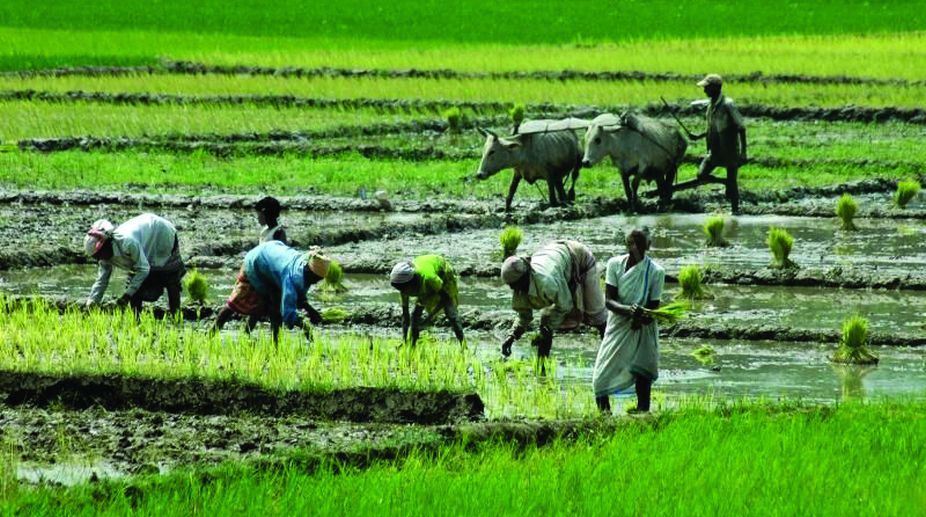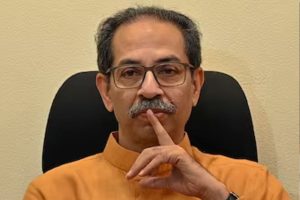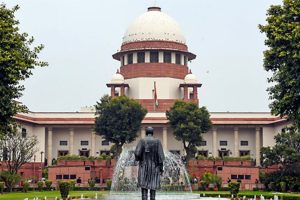Suicide by farmers is a major problem that confronts political parties in several states, including the ones that are prosperous. Surprisingly in West Bengal, economically a poor state, not a single case of farmer’s suicide was recorded in 2014 and 2015, according to the report of the National Crime Records Bureau. In Bihar there is a certain misconception, specifically that a large number farmers have migrated to the agriculturally rich states, such as Punjab and western UP, after the state’s economy declined when Lalu Prasad was chief minister.
The richer the state, the higher is the number of farmers’ suicides, according to the NCRB. The reverse relationship between the economically developed states and agricultural suicides suggest that the economic health of a state does not signify the health of the farmers there. Maharashtra ~ the richest state in the country ~ recorded the highest number of farmers’ suicides in 2014 and 2015. This was followed by Karnataka and Telangana. Both are rich in terms of their GDP and per capita income. Seven states, of which four are rich (Maharashtra, Karnataka , Telangana and Tamil Nadu), accounted for 87.5 per cent of farmers’ suicides in 2015, according to the NCBR report.
Advertisement
The economic problems that the farmer has to countenance have somehow spared the peasantry of Bengal from opting for the worst. Substantive evidence illustrates that Operation Barga, introduced by the CPI-M, translated into agricultural dividend. This minimised the distress of the peasantry. The scheme, a watershed in land reforms, provides legal protection to the small and marginal farmers from the exploitation by rich farmers . Farmers in general were protected even during crop failure or when overburdened by debts.
Intrinsically, Operation Barga means that a farmer will cultivate the land on the terms of sharecropping… and without land rights. Farming on the basis of sharecropping is not unusual in India. But, giving the land right to the tillers was the bonanza for the Bengal farmers. Indeed, the operation amended the West Bengal Land Reform Act 1955 and enacted a new Act, namely the Bengal Land Revenue Act 1979 and the Revenue Rules 1980.
A sharecropper tills the land of a third party and shares the proportion of crops with the landlord under an agreement. In most states, the agreements are verbal. Sharecroppers or the tillers in West Bengal, registered under the new Act, have three important rights. First, the sharecroppers have perpetual rights to till the land . In other words, the sharecroppers and their descendants have the right to till the land forever. Second, the sharecroppers and their descendants cannot be evicted. Third, a landlord cannot sell the land without the consent of sharecroppers and vice versa. In the net, the sharecroppers became the de facto landowners, albeit not on paper.
Operation Barga engendered a long-term bonding between the landowners and cultivators. Given the new law empowering sharecroppers, the farmers became eligible for agricultural subsidies and soft loans from the banks. In other states , sharecroppers are by and large not eligible for subsidies and soft loan, since they are not registered farmers, unlike in West Bengal
The report of the NCRB reveals that small and marginal farmers were prone to suicides. In 2015, over 70 per cent of farmers’ suicides were committed by small and marginal farmers across the country. These farmers were either landless cultivators or earned a pittance from the land.
Most of these farmers cultivate the land of rich farmers as sharecroppers on the basis of a verbal understanding. As most of these farmers are landless and not registered , they are deprived of government subsidies and soft agricultural loan from banks. Subsidies and incentives go to the rich farmers.
The Act that introduced Operation Barga in West Bengal helped small and marginal farmers immensely… from being deprived of government subsidies and soft agricultural loan. According to the noted economist Dr Swaminathan S Anklesaria Ayer, most of the farm subsidies and soft loan do not reach the actual farmers. Such fiscal assistance is availed of generally by rich farmers.
He has alleged that inadequate distribution of government subsidies and agricultural loans, due to the absence of proper legislation , were the major reasons for farmers’ suicides. For example, some states provide free electricity. But, the benefits go to big and rich farmers . In point of fact, the biggest farmers get the biggest share of the loan. Marginal farmers and labourers get little or no formal credit. Big farmers are the major beneficiaries of loan-waivers.
Towards this end, the farmers in West Bengal are largely protected by the new land reform law. The benefits of government subsidies and soft-loans reach the actual farmers through the panchayat system and it is the Block Development Officer who monitors the process. Indeed, Operation Barga has yielded agrarian dividend.
West Bengal has emerged as one the most successful states in the agricultural segment. It is one of the largest producers of rice, the second largest producer of potato, and the biggest producer of fruit and vegetables in the country. It is the fifth largest producer of agriculture products.
Suicide by farmers is a global phenomenon. The risk is not confined to India. Every second day, a farmer commits suicide in France. Australia reports one such suicide after every four days. In the USA , the rate of farmers’ suicides is higher than in any other occupation, according to a study by the Centre for Disease Control and Prevention.
Nevertheless, the reasons attributed to the farmers’ suicides in developed nations are different from that in India. Price is the major factor in these countries. Volatility of prices that erupts from the demand-supply imbalance and the intervention of speculators or intermediaries, are the major factors behind farmers’ suicides in these countries.
West Bengal has generally been free from suicides by farmers. Arguably, this is the only gift the state owes to the Communist government’s 34-year stint.
The writer is Adviser, Japan External Trade Organization (JETRO), New Delhi.The views are personal











